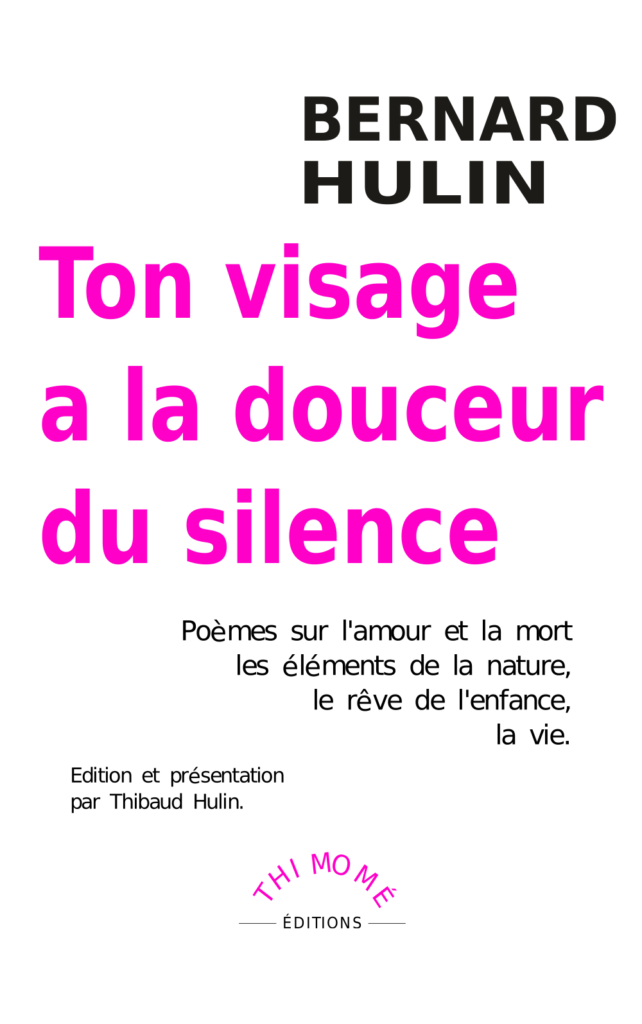
I published and provided a presentation introduction to the book "Your face has the sweetness of silence: poems on love and death the elements of nature, the dream of childhood, life", by Bernard Hulin, my father.
It is possible to buy the book online thanks to the Amazon's print-on-demand service (if you know of another, write to me!).
This work constitutes the complete poetic work of Bernard Hulin (1939-1989). It covers important topics for poets of the 1960s to 1980s : natural elements, lost childhood, love. His sensitive and graphic writing shares his apprehension of the world. It bears witness to a point of view that is at once humanist, tragic and tender.
The collection is accompanied by a text presenting the poet and his work. This presentation was written by Thibaud Hulin : “a French poet in the 20th century”.
“Poetry traces men, a sign of their passage on earth”.
“Poetry does not allow cheating.
Poetry lays bare. Poetry lays bare.
Poetry and beauty are to be conquered, but innocence is lost forever”.
“In poetry, the journey is short: from birth to death, through childhood.
Over the course of a poem, the paths that lead to life are built”.
Excerpts from "Poetic work of Bernard Hulin"
The poetry of Bernard Hulin as breathing
Why read and publish today the work of a 20th century poet who made only one attempt during his lifetime? Is being the son of Bernard Hulin a sufficient reason?
Undoubtedly yes for those who knew him; and not for the reader who comes here to discover a new poetic experience. Also, to convince them of the major importance of this reading, we will start by questioning the motivations of the writer. What are they: is it for the love of oneself, or for the love of art?
No doubt a sincere poet does not publish for the sole purpose of self-promotion. But conversely, publishing in the pure disinterestedness of art is probably too good an idea not to overshadow other motives. In Bernard's case, the real motivation is not always explicit. It is therefore up to the readers to form an opinion, in order to better understand the work and its purposes. Indeed, it is a widespread idea that to write is to share one's subjectivity, a part of oneself. The author's life sheds light on the work and explains how, for him, literature is a vital activity. Bernard Hulin thus gives us what literature is according to him:
Do not consider literature as a means or as an end, but as a breath.
